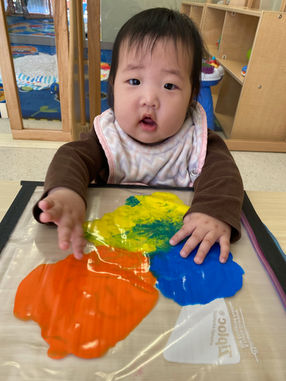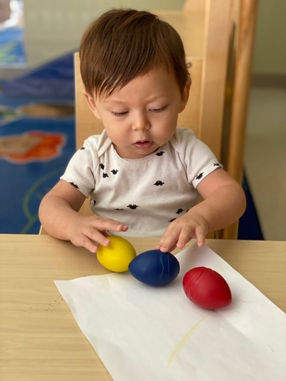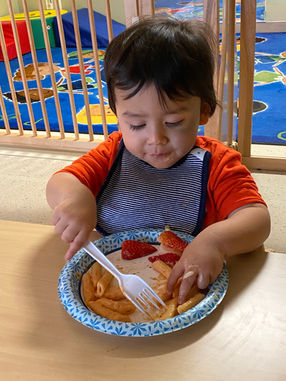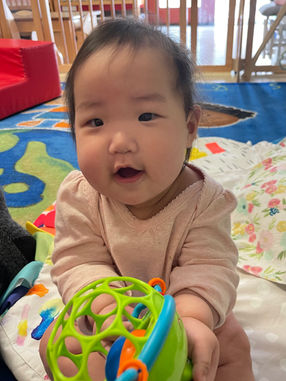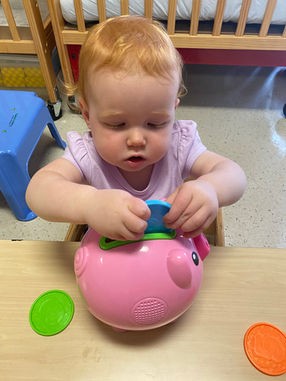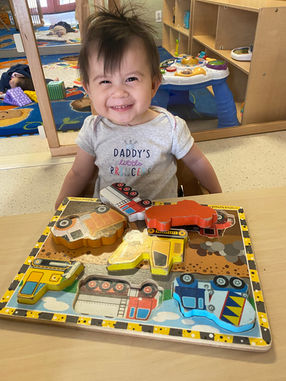
Program for
INFANTS
12 weeks - 18 months
From birth, the infant’s fundamental need is to be loved. Arborland Montessori Children’s Academy loves and nurtures infants as they enter into the first sensitive period of development. Classroom work period and activities focus on four areas of development: movement, sensory perception, language, and order.
Curriculum
01
MOVEMENT
Even before birth, infants are testing out their limbs, reflexes and gross motor skills. This joyous exploration of the body’s ability to move includes everything from kicking and stretching to using tiny fingers to pick up objects. The Montessori curriculum encourages the infant to explore his/her own body movements. Work time consists of ball play, rolling, block stacking, puppet play, and more. Tummy time, head-lifting, grasping, control of hands and feet, crawling, sitting, and hand-eye coordination are encouraged through a clean, soothing, and matted prepared environment and a loving teacher.
02
SENSORY PERCEPTION
An infant’s perception of sound, sight, touch, taste and smell is extremely acute. Therefore, the prepared environment is kept peaceful and teachers speak in gentle tones. Less is more at this stage of development, which helps the infant thoroughly explore without feeling overwhelmed. Classical music provides soothing background to relax the infant. As infants begin to take interest in the world around them, the teacher’s goal is to follow the infant’s interests in new sensory experiences and to go at his/her own pace. Weather permitting, outdoor buggy rides allow infants to explore the outside world.
03
Language
From the womb, babies begin reacting to sounds they hear from the outside world. After birth, infants slowly begin to match where certain sounds come from and often are most interested in sounds coming from other humans. Though infants have not yet discovered spoken language, they intently watch the mouths of the teachers around them and begin moving their own lips in imitation. They soon realize their ability to create their own sounds and will repeat syllables over and over as they learn to control their lips, tongue and throat. The curriculum at this stage includes plenty of talking time to the infant through stories and song. Circle time consists of recognizing who is present, puppet shows, felt board stories, counting, nature, and more.
04
order
This last part of the infant curriculum is extremely important to helping the infant feel love and security. As infants experience the world around them, they feel a sense of chaos until they begin making sense of all the sights, sounds, smells, etc. At their own pace, they begin to realize that naps happen at specific locations on a specific texture. The location of furniture, the amount of light and a teacher’s hair style all give the infant a sense of security once he/she realizes that everything has a rightful location. At this stage, the curriculum familiarizes the infant with the environment and teaches how the environment is ordered. This fosters security in the infant, which allows him/her to relax, feel love and be open to developmental exploration.

Most infant activities develop multiple areas at the same time. Stamping, pasting, exploring textures, decorating, using hand gestures, discovering new sounds, playing instruments and listening to different languages often will develop movement, sensory perception, language and order in the infants.

